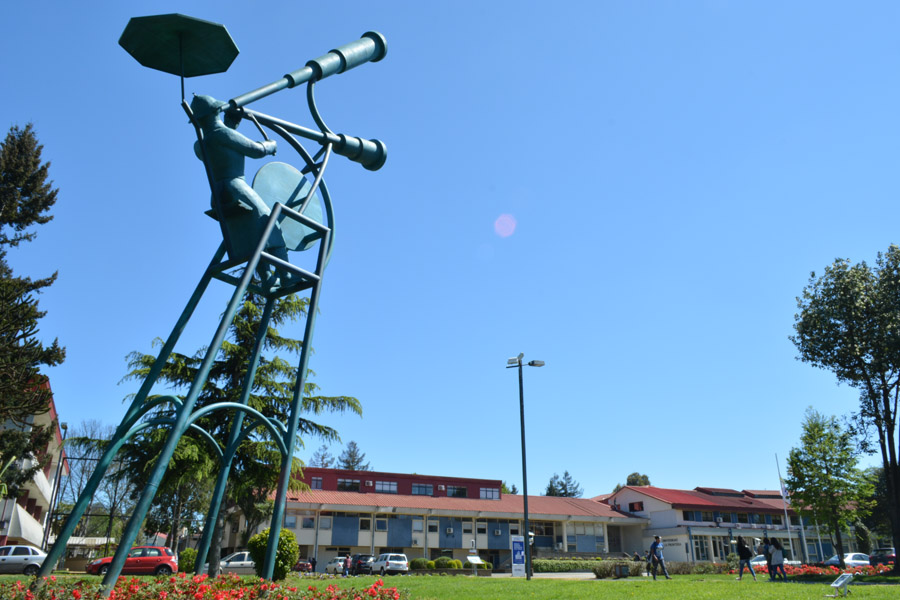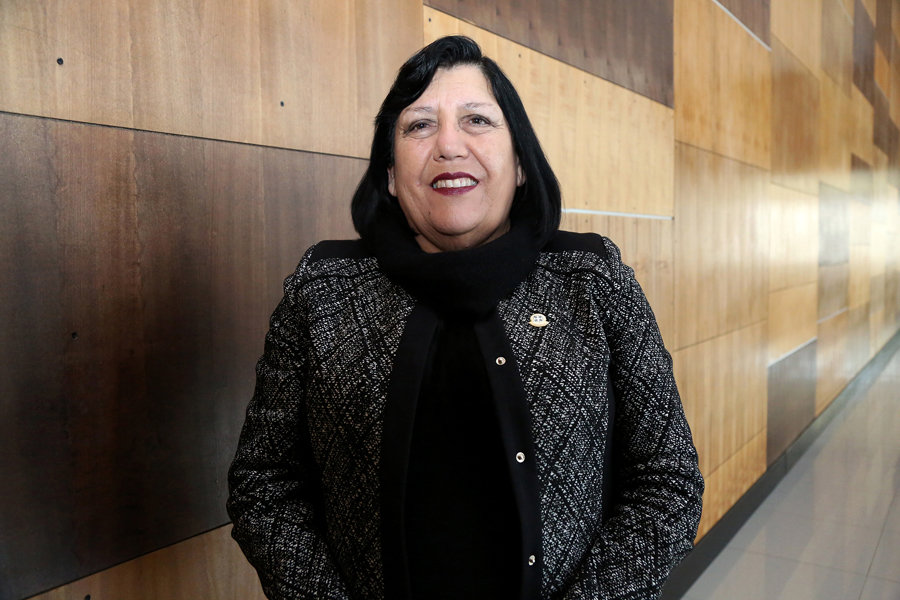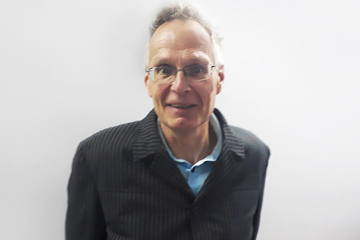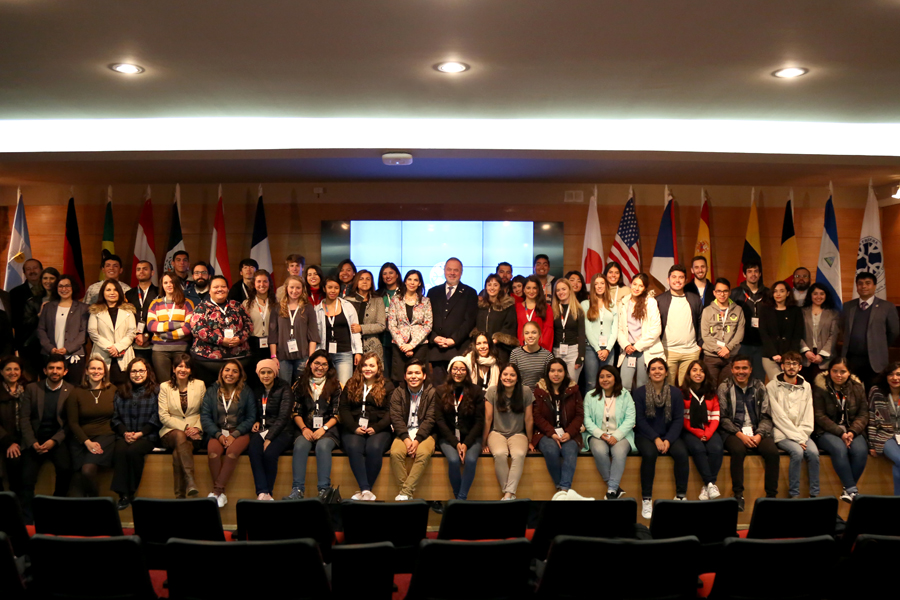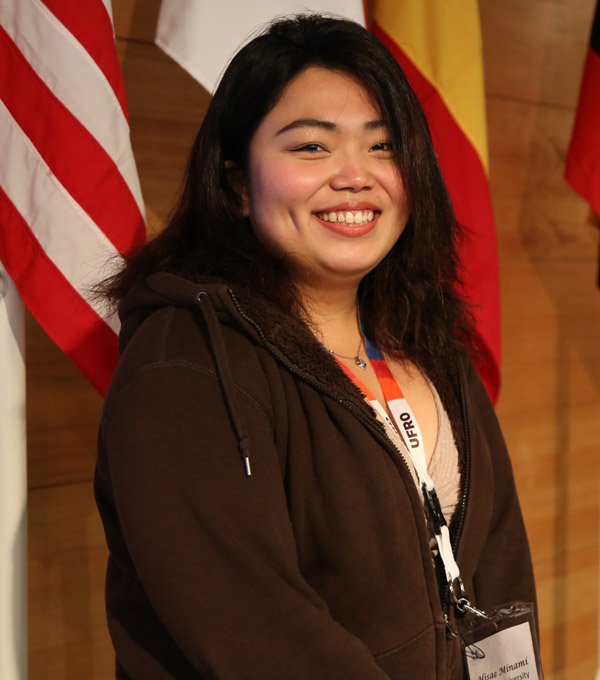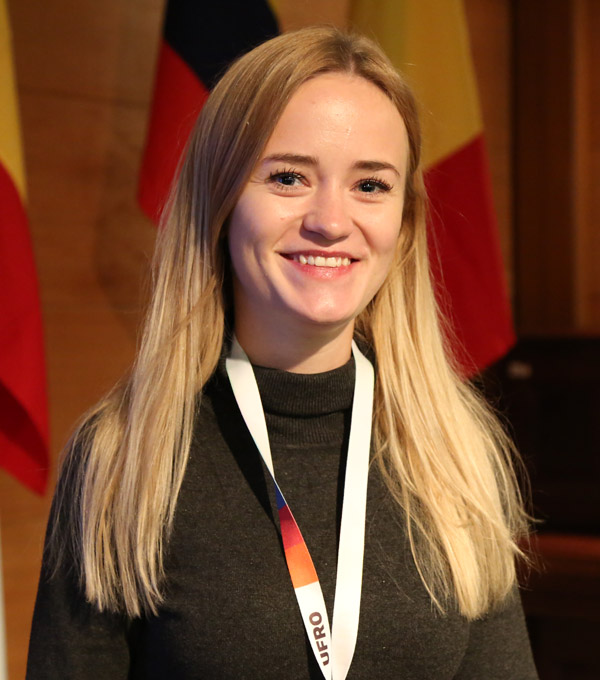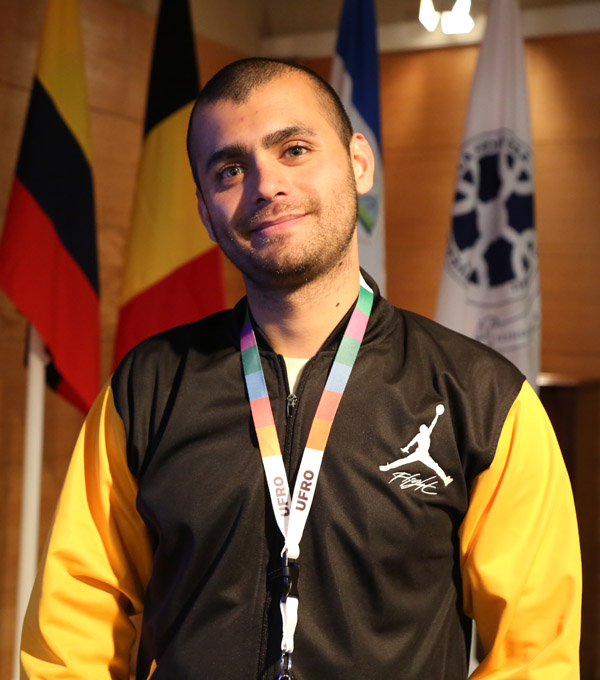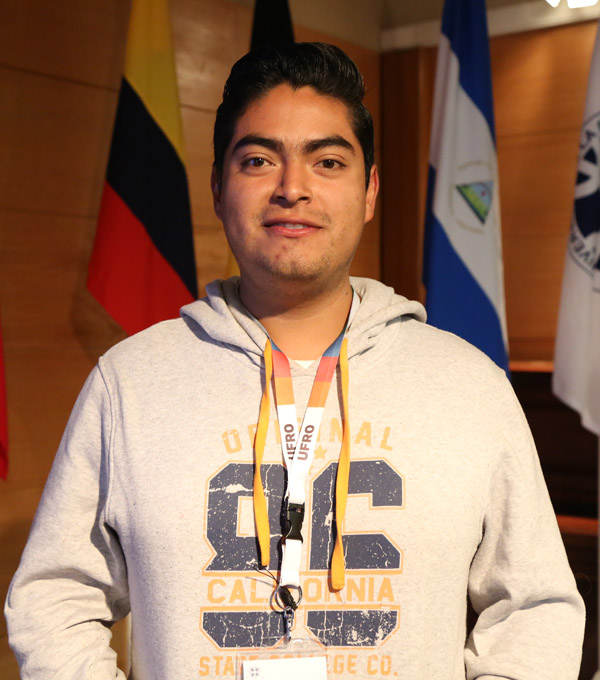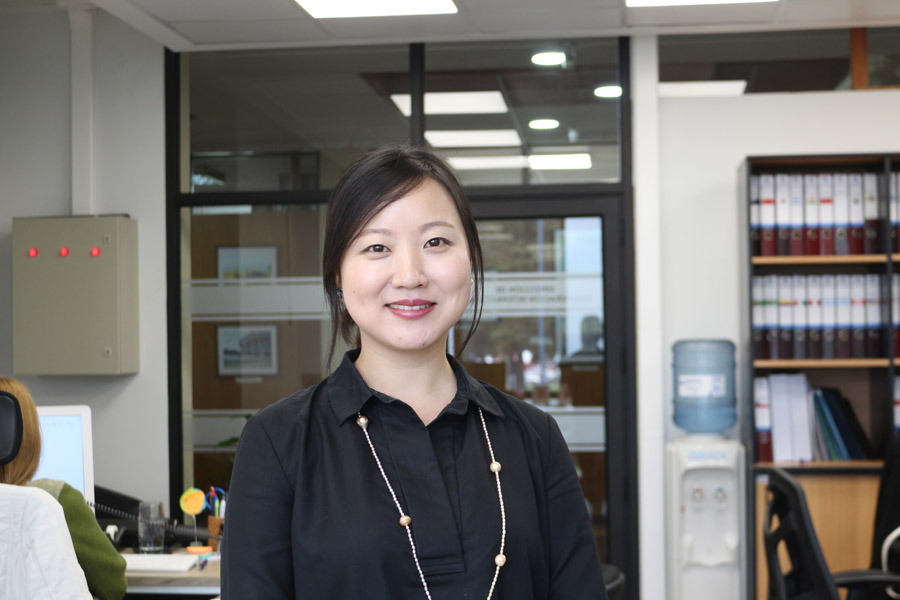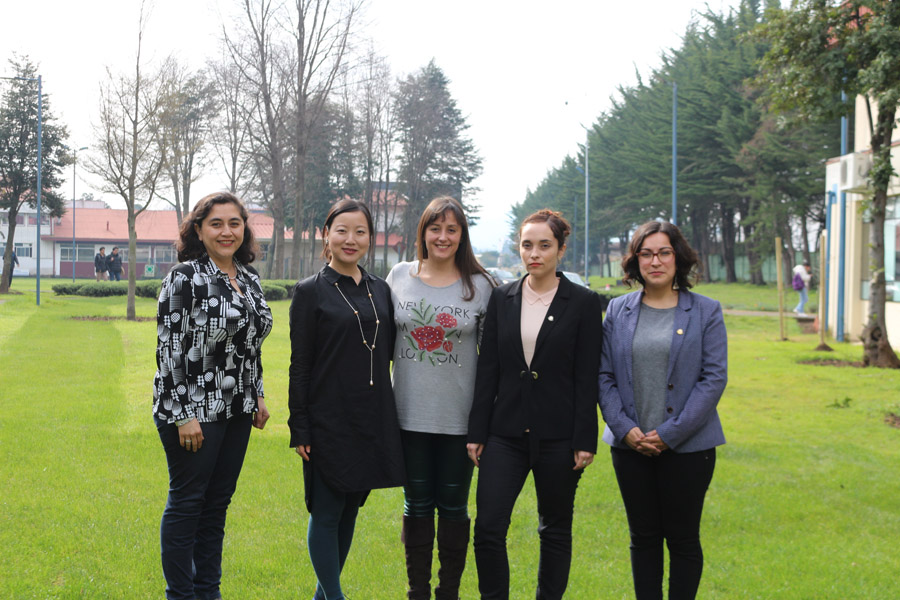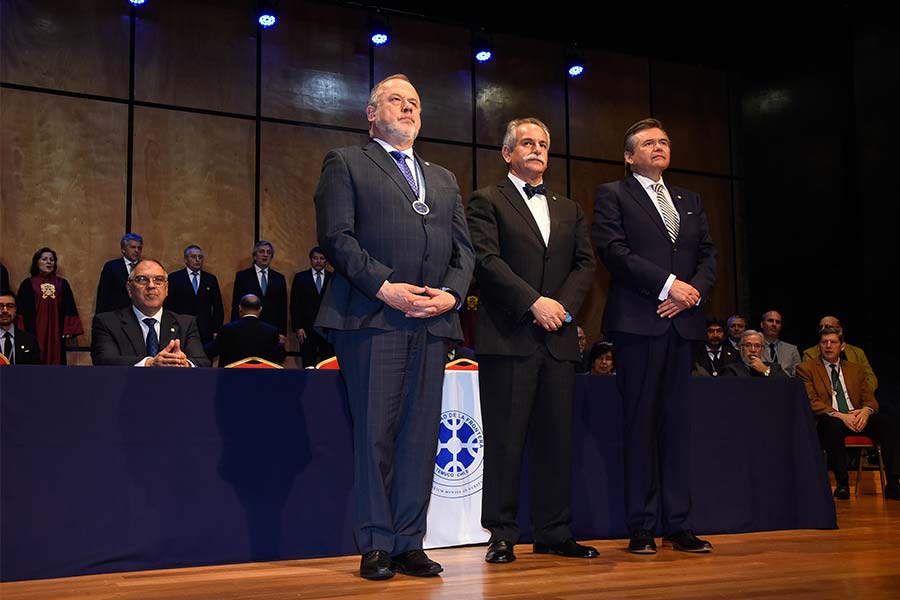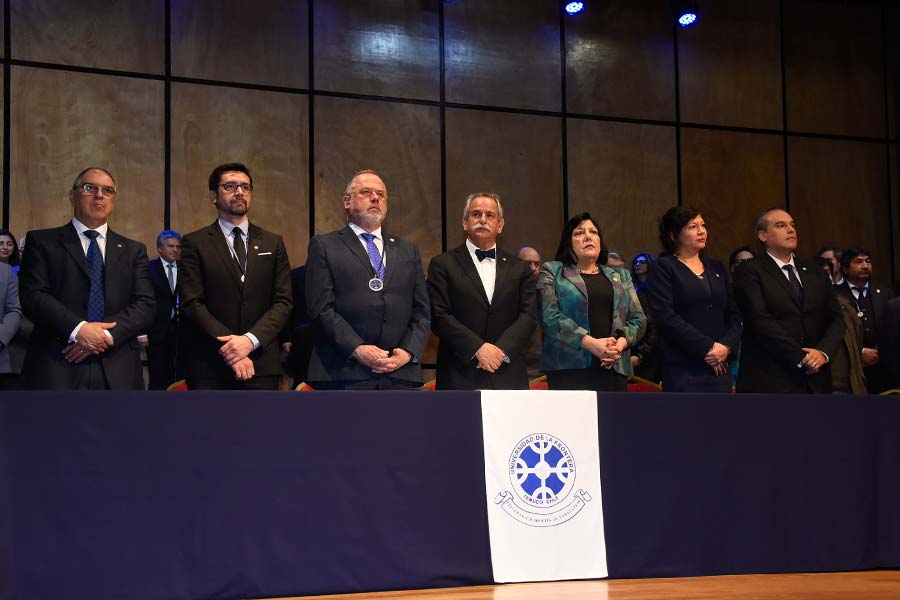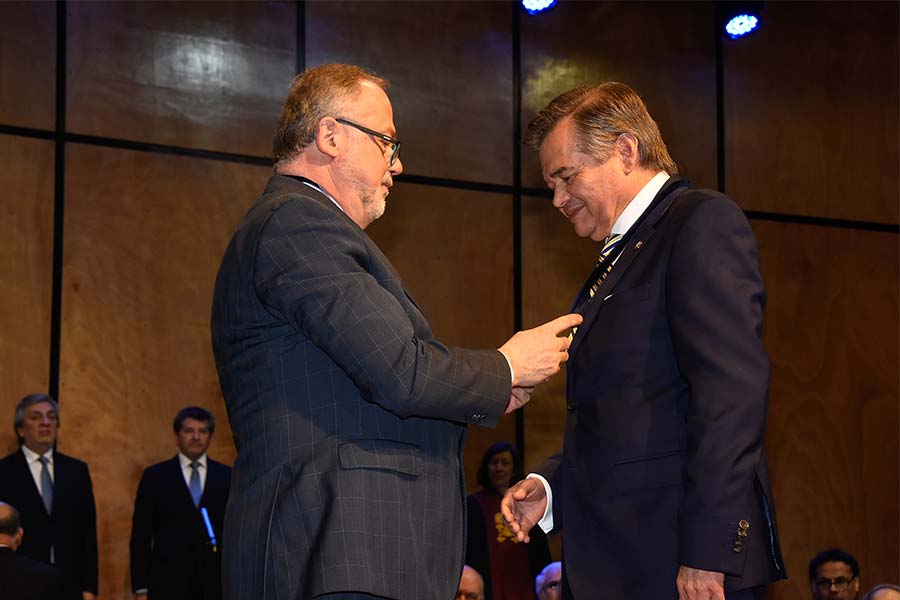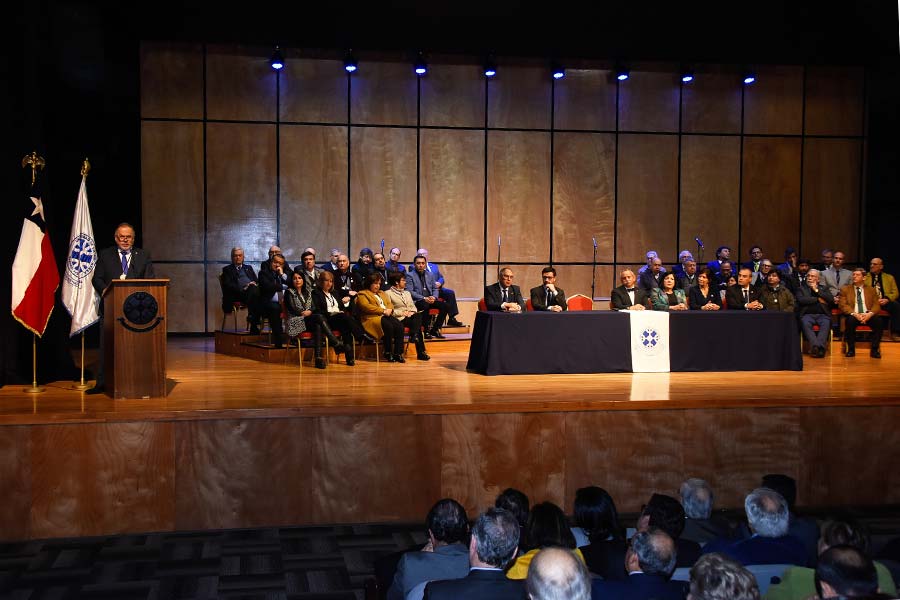|
The Universidad de La Frontera is one of four regional universities of the U.S.-Chile University Partnerships Program, a competitive initiative that supports the growth of institutional internationalization strategies of the benefiting educational establishments. |
The institutional project is organized by the Vice-rectorate for Academic Affairs and will strengthen the institutional internationalization strategy by ascribing to a U.S.-Chile University Partnerships Program that will allow the Universidad Católica de la Santísima Concepción, Universidad Bío-Bío, Universidad Austral de Chile and Universidad de La Frontera to strengthen their comprehensive internationalization strategies by opting for the best methods in that field, under the guidance of the experience of U.S. universities. Dr. Gloria Rodriguez, Vice-rector for Academic Affairs, confirmed that earning this project is part of the institution´s aim to advance to perfection regarding the internationalization strategies. She pointed out: “Being part of this program allows us to learn from the best and to develop a comprehensive view on internationalization that includes dimensions such as institutional management, administration, curriculum, faculty policies, student mobility, innovation and research. All of that covered in a systematic and transversal manner, developing the institutional capacities that are necessary for going beyond our borders.” The U.S.-Chile University Partnerships Program will be extended for eight months and divided into three parts: 1) establishments that have one basic line of current internationalization strategies in Chilean universities; 2) training applied by the American Councils and U.S. experts in order to improve the guidelines for internationalization; 3) strategy implementation, mentoring and guidance. Dr. Pamela Leal, director of the International Affairs Office at the Universidad de La Frontera, explained: “This initiative will benefit institutional relations in higher education and especially the researchers and teachers who will have the opportunity to create new networks for academic collaboration and exchange for joint projects.”
Written by: Pamela Carrasco
Communications Office |
|
The researcher who is working at the Institute for Bio- and Geosciences (IBG) of the Forschungszentrum Jülich in Germany, as well as at the Institute for Biodiversity and Ecosystem Dynamics (IBED) of the University of Amsterdam in the Netherlands, shared his knowledge in his fourth visit at the UFRO. |
The links BIOREN-UFRO has with prestigious world-class research centers remain intact. The recent visit of Dr. Roland Bol, who is working at the Institute for Bio- and Geosciences (IBG) of the Forschungszentrum Jülich (Germany), as well as at the Institute for Biodiversity and Ecosystem Dynamics (IBED) at University of Amsterdam (Netherlands), is proof of that.
 Written by: Lorena Espinoza Arévalo Written by: Lorena Espinoza ArévaloVice-rectorate for Research and Graduate Studies |
|
After opening the doors for academic exchange of undergraduate and postgraduate teachers and students and in order to strengthen research, the Spanish language program for students of Heilongjiang University (China) is a concrete step towards internationalization and an important result of this alliance. |
In August 2017, a committee of the Universidad de La Frontera, composed of Ana Moraga, the former Vice-rector for Undergraduate Affairs; Roberto Araya, the former director of Libraries and Information Resources; Pamela Leal, the director of the International Affairs Office; and Qingjun Wu, the UFRO advisor on relations with China, went to China in order to establish the bases for a cooperation agreement with Heilongjiang University and Tianjin Agricultural University.  Written by: Pamela Carrasco Written by: Pamela CarrascoCommunications Office |
|
In a solemn ceremony of installation of the new university´s governing body, the Rector, Dr. Eduardo Hebel Weiss, delivered his first message to the university community. |
In presence of local, regional and national authorities, academics, teachers and students, the Universidad de La Frontera held a ceremony of assumption of office for the rector, Dr. Eduardo Hebel Weiss, and the university´s new governing body after 16 years of leadership by rector Sergio Bravo Escobar. The university community, as well as local and regional authorities came together at the Aula Magna of the UFRO in order to express their wishes for the success in this new chapter for this state and public university in the Auraukania Region.
 Written by: UFRO Rector´s Cabinet Written by: UFRO Rector´s Cabinet |





